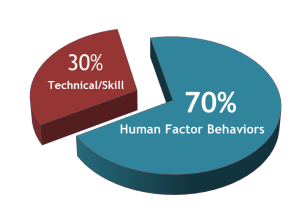
The Challenge of Selection in Labor-Scarce Industries
While multiple factors are related to turnover and performance, both share a common beginning—selection. Performance begins with selection. Identifying and hiring the “best” candidate is more acute in industries with a shortage of qualified labor to fill positions.
Motorcoach Industry Dilemma: Navigating Regulations and Shortage
The motorcoach industry is a prime example. Saddled with regulations and a short supply of drivers has forced some in the industry to hire minimally qualified people, i.e., those who meet the basic requirements. A “best” driver becomes whoever meets the minimum qualifications in terms of all state and federal requirements. Some companies can almost not afford to turn away such a “qualified” driver. After all, their coaches need drivers. Situations like this put tremendous pressure on recruiters and owners to get positions filled.
The Quest for the Right Drivers
In truth, motorcoach operators are not just hiring anyone who walks in the door with a CDL and other requirements. The question is, “Are operators hiring the right drivers?” Even the performance of 10 minimally “qualified” drivers will vary. The trick is to identify and hire those most likely to perform as well as your “best” drivers.
Solutions to the Selection Challenge
There are two solutions:
1) Enhancing Screening for Quality Candidates
Do a better job screening applicants who meet mandated minimum qualifications to identify drivers as good as your “best.”
2) Training the Next Generation
Identify and train new people to enter the industry. Both are issues of selection. In the latter, it is not enough to think [Someone] can train anyone interested to rank among the “best” or even complete the training.
The Overlooked 70-80 Percent of the Job
Let’s look first at training “new blood.” Notably, most training efforts focus on the skill part of the job. However, skills typically represent only about 30 percent of any job category. Seventy to 80 percent of the job involves human factor behaviors, significantly impacting overall job performance. There is no way one can predict total job performance based on 30 percent of the job, and this is where those hiring drivers and techs find themselves.
The Role of Soft Skills in Training
Americans have great faith in training. Companies spend millions every year on training. There’s an attitude that we can train just about anyone to do anything, and we have developed effective training techniques. Again, most training focuses on hard skills or technical parts of the job. However, considering that training only impacts 30 percent of the job, it is a small wonder we continue to find such variance in overall performance.
Hiring for Behaviors, Training for Skills
The “soft” skills or human factor behaviors that a specific job requires are most challenging to train for and, short of a behavior modification program, almost impossible to achieve. That is why one often hears that in the selection process, one should hire for behaviors and train for skills. Training efforts are much more successful if people already possess the critical human factor behaviors they need to be among the “best” before being taught technical skills.
The Futility of Trying to Turn “Sow’s Ears” into “Silk Purses”
Sadly, companies spend time, talent, and dollars every year trying to train people to be something they are not and never will be. Indeed, they will learn the technical side of the job, but will they be good at it? If you are a trainer, how often have you asked yourself as you meet your new training class, “How do anyone expect me to make silk purses out of sow’s ears? Please give me people I can work with.” Only some people who want to receive training are worth the effort.
Conclusion: Assessing Candidates for Success
Being able to assess candidates against a success profile for the job is critical, and we will take up that topic in the third and final part of this series on hiring. In industries like motorcoach operations and technical fields, the challenge of selection is magnified. By focusing on both skill and behavior during the selection process and investing in training, organizations can ensure they are hiring and developing the right talent for lasting success.
Unlocking Potential with Scheig Solutions
Scheig Solutions develops job-specific pre-employment assessments, interview questions, and performance evaluations designed to identify applicants who are a good match for the job. They have programs designed explicitly for motorcoach drivers, school bus drivers, and diesel technicians. They have been in business for over 30 years as recognized leading providers of behaviorally based hiring tools.
For more information, contact Chris Fisher at (800) 999-8582 or visit www.scheig.com.




